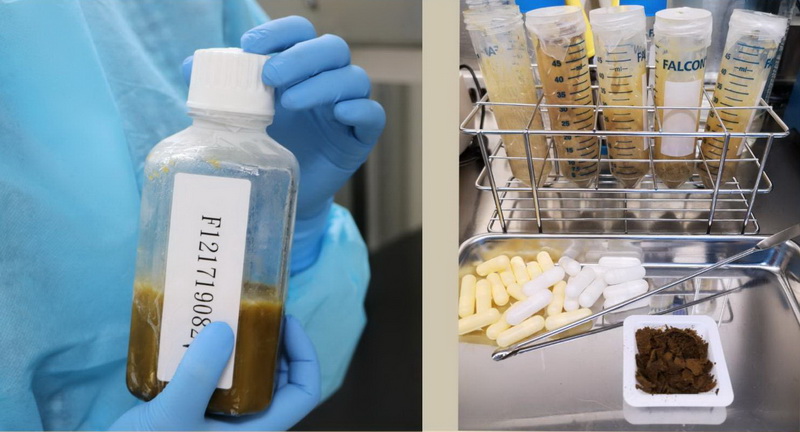Feces are generally perceived as dirty, unclean, and something to avoid at all costs. However, the latest study has revealed that fecal bacteria can effectively predict the treatment effects of immunotherapy on liver cancer (hepatocellular carcinoma, HCC). Patients with good gut microbiota not only respond more favorably to immunotherapy, but also demonstrate markedly higher survival rates.
Immunotherapy is a novel cancer treatment option available today; it is particularly beneficial to patients whose liver cancer cannot be surgically removed or locoregional treatment failure. Nevertheless, biomarkers that can effectively predict the treatment effects of immunotherapy on HCC are currently lacking.
Accordingly, since 2018, the liver cancer research team led by Dr. Yi-Hsiang Huang, a professor at the Institute of Clinical Medicine (National Yang Ming Chiao Tung University) and the Chief of the Division of Gastroenterology and Hepatology, Department of Medicine (Taipei Veterans General Hospital) has collected the fecal samples of 41 HCC patients who received immunotherapy at the Taipei Veterans General Hospital. The collected fecal samples were compared with those of 17 healthy people to analyze their gut microbiota through next-generation sequencing. Next, the research team collected fecal samples of 33 patients with HCC for further validation.
The feces of patients with HCC mainly consist of Bacteroidetes and Firmicutes at phylum level. In the feces of patients whose tumor worsened by immunotherapy, Professor Huang’s research team found mostly Prevotella 9 (under phylum Bacteroidetes ). By contrast, in the feces of patients who responded favorably to immunotherapy, the research team found mostly Lachnoclostridium and Veillonella (under the phylum Firmicutes). In addition, the research team discovered that the abundance of the Lachnoclostridium in the feces was correlated with their secondary bile acid concentration.
Overall, in patients with good gut microbiota, their liver tumors responded significantly more favorably to immunotherapy, and the patients had higher survival rates. Statistical predictions indicated that in the best-case scenario, patients with more Lachnoclostridium and less Prevotella 9 in their feces had a median overall survival of 22.8 months.
Professor Huang noted that the human gut contains trillions of bacteria. These bacteria are closely related to nutrition, metabolism, immunity, and other bodily functions. Studies have reported that in addition to predicting the treatment response of immunotherapy on liver cancer, gut microbiota can regulate the effects of immunotherapy on melanoma, certain lung cancers, and kidney cancer.
Although the effects of gut microbiota on cancer therapy remain inconclusive, some studies have discovered that Lachnoclostridium features anti-inflammatory potential, and that Prevotella 9 is associated with inflammatory imbalances. These reasons may attribute to why gut microbiota have an effect on immunotherapy effectiveness.
Doctor Pei-Chang Lee, a member of Professor Huang’s research team and an attending physician of the Division of Gastroenterology and Hepatology, Department of Medicine, Taipei Veterans General Hospital, remarked that both Taiwan and the Asia-Pacific region have high HCC prevalence rates. Thus, the results of this study will help clinicians predict, using a noninvasive method, the tumor responses and survival prognoses of patients with liver cancer during immunotherapy. This enables clinicians to provide patients with more precise HCC treatment and lower their mortality rates.
Although the correlation between gut microbiota and cancer treatment has already been discovered in the field of science, such as the effects of Bifidobacterium and Ruminococcaceae on the immunotherapy treatment results of melanoma (as confirmed in animal and human experiments), the present study is the first made on the correlation between gut microbiota and HCC immunotherapy. The study has won the recognition as the best study in the 2022 European Association for the Study of the Liver (category: liver cancer) and been published in Journal for ImmunoTherapy of Cancer, an internationally renowned journal.



、李沛璋醫師(右一)與研究團隊成員.jpg)


